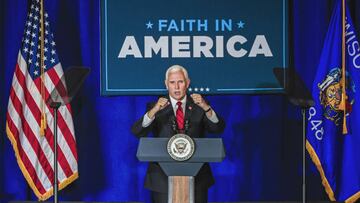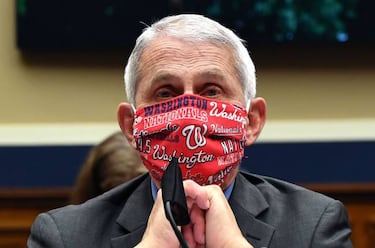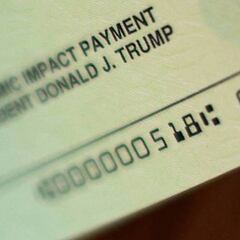Coronavirus US: multiple states report thousands of cases per day
California, Florida, Arizona and Texas are among 26 states to report an increase in Covid-19 cases since the US started easing lockdown restrictions.

A total of 26 states in the U.S. are reporting an increase in the number of confirmed coronavirus cases as lockdown restrictions imposed in March and April are gradually eased. The administration of President Donald Trump has been eager to reopen the ailing economy but as US citizens are given more freedom of movement and businesses start to open their doors again, there has been a spike in Covid-19 cases across the country.
California, Florida, Arizona and Texas have all reported large increases in cases. California registered 5,019 on Monday and both Florida and Arizona had more 3,000 new cases over 24 hours.
Speaking to CNN, an expert warned that the coronavirus pandemic in the US could be “spiralling out of control.”
If the numbers continue to rise, states across the US could reimpose restrictions in an effort to combat the spread of the virus: Washington state has already made the wearing of face masks mandatory in public places.
Meanwhile, the EU is considering placing the United States on a no-fly list of countries whose citizens will be banned from entering the bloc as of 1 July when Europe will reopen completely to tourists. That would represent a huge blow to the prestige of the US and raise significant questions over the Trump administration’s handling of the crisis ahead of the presidential elections in November. Brazil, Russia, Iran and Argentina are all expected to be among the countries the EU will block from direct travel to its 27 member states.
Fauci: “We’re still in the first wave”

Dr. Anthony Fauci, the U.S. government's top infectious disease expert, said it is too soon to discuss a second wave when the United States has never emerged from a first wave in which more than 120,000 people have died and more than 2.3 million Americans have had confirmed infections with the novel coronavirus.
"You can't talk about a second wave in the summer because we're still in the first wave. We want to get that first wave down. Then we'll see if we can keep it there," Fauci told the Washington Post last week.
U.S. Covid-19 cases spiked in March and April and then edged downward in response to social-distancing policies aimed at slowing the transmission of the virus from person to person. But unlike several countries in Europe and Asia, the United States never experienced a dramatic drop in cases marking the clear end of a first wave. There is now a plateau of about 20,000 U.S. cases daily and overall case numbers have jumped by 25% nationally, according to the latest seven-day tally.
White House economic adviser Larry Kudlow said on Monday that a "second wave" is not coming. However, Dr. Theo Vos of the University of Washington's Institute for Health Metrics and Evaluation called those assurances "wishful thinking."
Based on global models, his group has predicted that the coronavirus will surge in the fall as colder temperatures arrive in the United States.
"It's likely to start picking up in October," Vos said, with increased cases hitting in November, December and January.
Trump approval rating slumps
American approval of President Donald Trump's handling of the coronavirus pandemic has dropped to the lowest level on record, the latest Reuters/Ipsos opinion poll shows, as new Covid-19 cases surged and Trump was widely criticized for suggesting he wanted to slow down testing.
The poll shows that 37% of Americans approved of the way Trump has responded to the pandemic.
With a little over four months to go before the general election, Joe Biden, the presumptive Democratic presidential candidate, leads Trump by 10 percentage points among registered voters, according to the latest poll, down slightly from a 13-point lead in a similar poll last week.
Related stories
In his first post-pandemic rally, held in Oklahoma on Saturday, the president told thousands of supporters that testing was a "double-edged sword" and that he asked health officials to slow down testing in response to the public's concern for the growing number of cases.
Administration officials said Tuesday that Trump did not, in fact, ask them to slow down testing, which is one way to track and eventually control the spread of the disease.

